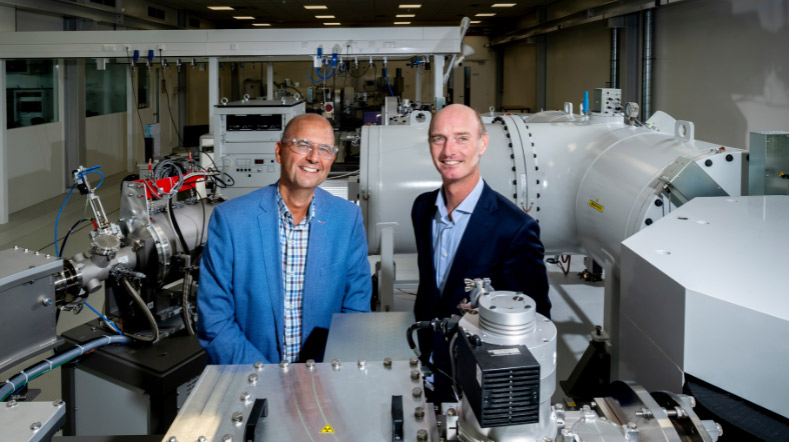
TNO’s translational models excel in preclinical research
Accelerating drug development requires us to remove some key roadblocks that slow down the development process. And one of the key roadblocks is the lack of translatability between preclinical trials and later human ones. In a recent international project, TNO not only helped uncover key biomarkers for NAFLD/NASH, but also received further confirmation that our models are the most translational. And you can read all about it in Hepatology.
In search of insight
In the study, an independent group of renowned, international clinicians and researchers executed an extensive metabolomics profiling project. The aim was to compare the complex metabolomic signatures of NAFLD/NASH patients with those of preclinical models. TNO’s animal model was selected because it also develops cardiovascular disease (CVD), which is still the leading cause of death among NAFLD/NASH patients.
The clinicians provided tissue and blood samples from nearly 1,100 patients across multiple countries to enable head-to-head comparison with preclinical animal models. The independent study was able to increase the scope to include various nationalities and patients at various stages of disease progression. ‘We aimed to stratify patients into subgroups and also identify which model represents each subgroup best,’ say Robert Kleemann, Principal Scientist for TNO Healthy Living. ‘In the end, metabolomics profiling revealed the existence of three distinct patient groups: high CVD risk, low CVD risk, and a mixed phenotype that also exhibited CVD risk metabolites. TNO’s model was determined to be the single-most translational model.’
Read the publication
Neuroimmune cardiovascular interfaces control atherosclerosis.
Mimicking humans masterfully
‘TNO’s animal models mimic human pathophysiology,’ explains Robert. ‘We extensively validated these models and compared them to human data regarding histology and the expression of proteins, genes and metabolites. We are more confident than ever that TNO’s animal models are the gold standard for NAFLD/NASH research.’
"We extensively validated animal models and compared them to human data regarding histology and the expression of proteins, genes and metabolites."
The models have already helped accelerate the study of innovative pharmaceutical approaches1,2, nutritional and nutraceutical treatments3,4 and novel body-brain disease mechanisms.
Do you want to learn more about translational models?
Do you have specific questions or do you want to learn more about the publication on translational models and preclinical research? Feel free to contact Robert Kleemann.
NAFLD/NASH and beyond
TNO’s work on NAFLD/NASH will continue. ‘We need to study the complex contributions of the gut and microbiome’s metabolites,’ Robert begins. ‘But we also want to work with partners to uncover the roles of muscles, inflamed adipose tissue and complex organ-organ interaction, so that we can intercept in causal mechanisms.’
At the same time, Robert says that TNO’s success with the NAFLD/NASH studies are a giant leap forward in the understanding of other diseases. ‘We have laid the groundwork for similar models for other complex metabolic diseases, liver disease, CVD and even muscle sarcopenia.’ What’s more, Robert sees the link between TNO’s models and the study of neurodegenerative disorders, and says that the team is particularly interested in disease related to inflammation, aging and mitochondrial dysfunction.
Addressing the complexity
Partnering with TNO for drug development research is about more than the highly translational models. ‘TNO doesn’t just offer remarkable technology. We’ve got the data and human tissue, and the deep understanding of human disease progression and the complexity of metabolic disease pathways,’ says Robert. ‘We can offer time-resolved data sets and longitudinal information that is often impossible to gain in human studies, in which a single end-point is studied. We can offer pharmaceutical companies the insight they need to address metabolic diseases earlier, and with more accuracy and efficacy.’
Aiming for fast accurate preclinical and clinical trials
Pharma companies want it. Regulators want it. Patients certainly want it: faster, more accurate, less expensive drug development. But with all the complexity that drug development entails, how can we accelerate the process?
More information
- Obeticholic Acid Modulates Serum Metabolites and Gene Signatures Characteristic of Human NASH and Attenuates Inflammation and Fibrosis Progression in Ldlr-/-.Leiden Mice
- Apical sodium-dependent bile acid transporter inhibition with volixibat improves metabolic aspects and components of non-alcoholic steatohepatitis in Ldlr-/-.Leiden mice
- Diet and exercise reduce pre-existing NASH and fibrosis and have additional beneficial effects on the vasculature, adipose tissue and skeletal muscle via organ-crosstalk
- Butyrate Protects against Diet-Induced NASH and Liver Fibrosis and Suppresses Specific Non-Canonical TGF-β Signaling Pathways in Human Hepatic Stellate Cells
About TNO
Innovation for Life
We are TNO. A safer, healthier, and more sustainable life. That's what we are all about. As an independent research organisation, we are the driving force behind innovation. We make knowledge serve the common good. Since 1932, it has been our mission to give the right answers – and to ask the right questions. For the world of today and tomorrow. By combining disciplines and domains, we can tackle the most complex questions. On the road to a better life and a brighter future.
Get inspired
TNO launches Peregrion to boost market impact of its technology that accelerates medicine development


PPP uncovers new insights into MASLD development


TNO research lays foundation for more reliable allergen information on food labels


Lifestyle disease models


A healthy lifestyle as the best medicine



